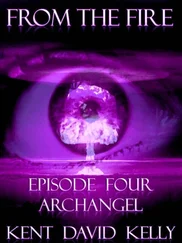And there the chapter crashed. She meant her tone to be judicious, sketching what had been believed when she was young, and what could fairly be believed now. To write something like: Experiments performed during the recent eclipse suggest that Einstein’s theories may be confirmed, in which case we may not need to postulate an ether to explain the transmission of light. However, spirited disagreement continues among scientists as to the meaning of these results, and it seems best, for now, to keep an open mind.
But even as she wrote that, she knew she didn’t believe it herself. No one could find the elusive ether; all the experiments had failed. Lodge and those who disbelieved Einstein wrote as if the ether were real but mysteriously unfindable, the experiments that had failed to detect it somehow defective, and she’d meant to give equal space to that position but — how could she? It wasn’t just the lack of evidence; something was wrong with the logic too. How could the ether be composed of knots or vortices in the ether? Her brain stuttered, her mind balked. Her eyes burned and ached. The sentences crumbled as she wrote them, and when she thought again about Lodge’s lecture, the tangle she’d pushed aside then snared her. The ether was a home for ethereal beings, the medium by which soul spoke to soul; perhaps God lived there: perhaps it was God himself?
She lay down and pressed a wet washcloth to her eyes. The ether was nothing and it was everything, it was whatever anyone wanted it to be. Writing about the ether was like trying to write about phlogiston. Although she’d explained more complicated models, and outlined concepts in which she believed less, never before had she tried to write something that taunted her with a sense of Michael hovering, just out of sight, in some gaseous form.

THREE DAYS OF heavy rain trapped her inside. On the fourth day, a front blew through and cleared the air as completely as if a giant hand had sponged it dry. That night, very late, after everyone was asleep, Phoebe went outside and lay down on the flagstones bordering her mother’s garden. Late March, the ground alive despite the cold air. There were the stars, circling above. There were the stars. Brilliant, blazing, bright against blackness, as beautiful as when she’d first stared at them so many years ago. White, blue, yellow, red. Once she’d gotten serious about the work to which the stars had drawn her, she hardly ever looked at them. She studied their motions, not them — when did she look at the sky anymore? Months passed when night meant her yard, her street, a few blocks of Philadelphia: everywhere people, everywhere lights. Now the lights were out, there was no one around. With her back pressed against the stones, she smelled dirt and leaves and budding trees. Branches fringed her view of the sky, which was speckled everywhere — and wasn’t it remarkable, really, that she should see the stars at all? Inconceivably far away, emitting light that traveled and traveled — how? through what? — and fell upon her optic nerves to form a picture in her brain: stars! She felt herself falling up into them, a feeling she remembered from her childhood. The space between her and the stars was infinite or nothing at all, it was empty or it was completely filled, it was, it was, it was …
The next afternoon she went looking for Sam, longing to talk about this. But Sam was gone; he was at a friend’s; they were working on a project for school. Disappointed, she sat down and wrote to Owen, describing her struggles and the two lectures she’d attended.
Strangely, it was listening to Lodge that confused me. I’m not sure why, maybe that — how to say this? Lodge’s conception of the ether is one of those models that, like an orrery or a gigantic watch, sets a nearly infinite number of pieces of something into motion, each affecting the other, until the actions are explained. But I don’t think we can explain this mechanistically. Listening to him describe the survival of the personality after death as some element held in or made from the ether made me realize how completely attached he is to the ether as an actual physical thing.
Interesting that she’d write that, but not a word about Michael. Not what flared through her mind at night: Lodge must be wrong, he has to be wrong. If he’s right, then Michael’s been within my reach this whole time and I could have been talking to him. I could be talking to him now. Not once had she even tried. She and Michael had held séances and spirit messages in such contempt that even to study the written accounts, never mind visiting a medium, would have felt like a betrayal.
Yet here was Lodge, famous and influential, perhaps even — was it disloyal to think this? — a better scientist than Michael had been, testifying to his beliefs before huge crowds. Either he was a liar, which he didn’t seem to be; or she herself was the worst kind of fool. But Einstein’s theories had also generated a similar confusion, especially here, as she wrote to Owen:
There’s a lot of pressure here — far more, I think, than in England — not to accept Einstein’s theory. People are so emotional — a prominent astronomer at Columbia started calling the theory “Bolshevism in science” as soon as the eclipse results were announced, and since then he’s written a slew of articles disputing the evidence. Another, in California, repeats him, but more shrilly. They have alternate explanations for the advance of the perihelion of Mercury. They object to the interpretation of the eclipse data (you know these arguments, the discarded observations, the large margins of error, etc.) and in the next breath claim that even if the light from the stars was shown to be bent, the cause may well be refraction by the sun’s corona, or a spurious displacement resulting from the chemistry of film development. They have plenty of supporters, working astronomers who place a premium on precise observations, and think the data from the expedition is nowhere near as solid as claimed.

THE DAFFODILS PUSHED through the dirt; the trees budded and the forsythia bloomed; the tulips came and went as she struggled with her chapter. Over breakfast one morning, she read about a professor who’d been following Lodge from city to city, contradicting everything he said about the dead and demonstrating some of the fakery employed by mediums; apparently she wasn’t the only one disturbed by the mingling of physics and spiritualism. She read the article to Sam, who set aside his toast to listen.
“That seems harsher than he deserves,” he said, surprising her. “I liked him, the way he seemed determined to think for himself.”
But before she could encourage him to say more, her father passed through the room, humming disconsolately, and Sam rose and followed him, leaving Phoebe alone with her failures. Here her father was, getting older and struggling: she had to earn more money. She went back to work.
Her mother’s obdurate peonies pushed through the dirt and unfolded their leathery leaves as Sam finished school for the year. The peonies budded, the buds bulged. Her mother, wrapped in a green apron, her hands sheathed in canvas gloves, disappeared into the garden, and her father retreated to the attic; Bach wafted down from the windows. She picked up her notebook and wrote: Sound is a wave that moves through the air, light is a wave in the ether … Then she crossed that out and wrote to Owen again, enclosing what she had so far. Owen didn’t write back, and didn’t write back, and then in late July he finally did, complaining about the shortages of food and coal and describing the weekend lectures he’d been giving to gatherings of miners and farmers. Only then did he comment on her draft.
Читать дальше













